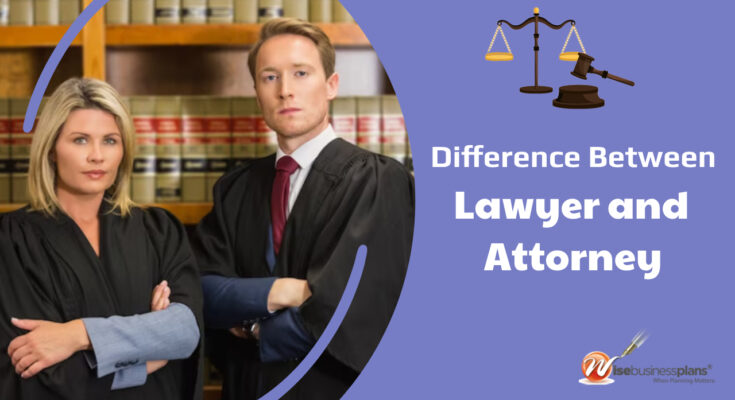Introduction
Attorney Types Compared The legal profession is vast and diverse, covering everything from defending people accused of crimes to advising billion-dollar corporations. While all lawyers are trained in the fundamentals of law, each type of attorney focuses on a specific area of practice. Understanding the different types of lawyers is important not only for aspiring legal professionals but also for clients who need the right kind of legal help.
This article will explore key attorney types — including corporate lawyers, criminal lawyers, and other major legal specializations — and compare their roles, responsibilities, and expertise.
1. Corporate Lawyer
Corporate lawyers specialize in the laws and regulations governing businesses and commercial transactions. They ensure companies operate within legal frameworks while minimizing risk and maximizing profitability.
Key Responsibilities
- Drafting and reviewing contracts, mergers, and acquisitions agreements
- Advising on corporate governance and compliance
- Handling intellectual property for businesses
- Negotiating deals and settlements
- Guiding companies during restructuring or liquidation
Skills Needed
- Strong negotiation and drafting skills
- In-depth knowledge of corporate law
- Analytical thinking and attention to detail
- Excellent communication with executives and stakeholders
Example: A corporate lawyer may help a tech startup secure investment by drafting legally sound shareholder agreements and ensuring compliance with securities laws.
2. Criminal Lawyer
Criminal lawyers focus on the defense or prosecution of individuals accused of crimes. They ensure that justice is served while safeguarding the rights of the accused.
Types
- Defense Attorneys: Represent the accused in court, aiming to prove innocence or reduce penalties.
- Prosecutors: Represent the government, working to prove the defendant’s guilt.
Key Responsibilities
- Investigating cases and gathering evidence
- Cross-examining witnesses
- Presenting legal arguments before a judge or jury
- Advising clients on plea bargains and trial risks
Skills Needed
- Persuasive public speaking
- Strong research and investigative skills
- Ability to think quickly during trials
Example: A defense lawyer may argue in court that evidence was obtained unlawfully, leading to the dismissal of charges.
3. Family Lawyer
Family lawyers handle legal issues involving family relationships, often requiring a blend of legal expertise and empathy.
Key Responsibilities
- Managing divorce proceedings and asset division
- Handling child custody and visitation agreements
- Drafting prenuptial and postnuptial agreements
- Assisting with adoption and guardianship
Skills Needed
- Negotiation and mediation abilities
- Sensitivity to emotional situations
- Comprehensive understanding of family law statutes
Example: A family lawyer might mediate a divorce settlement to avoid a lengthy, costly trial.
4. Immigration Lawyer
Immigration lawyers assist clients with matters related to visas, residency, citizenship, and deportation.
Key Responsibilities
- Filing visa and asylum applications
- Representing clients in immigration court
- Advising on compliance with immigration laws
- Assisting companies with work permits for foreign employees
Skills Needed
- Knowledge of constantly changing immigration regulations
- Strong organizational and documentation skills
- Multilingual abilities (often helpful)
Example: An immigration lawyer could help an international student transition from a student visa to a work visa after graduation.
5. Intellectual Property (IP) Lawyer
IP lawyers protect clients’ creations, inventions, and brand identities.
Key Responsibilities
- Filing patents, trademarks, and copyrights
- Representing clients in infringement cases
- Negotiating licensing agreements
- Advising on brand protection strategies
Skills Needed
- Technical understanding of inventions or creative works
- Familiarity with IP law domestically and internationally
- Negotiation and litigation skills
Example: An IP lawyer might help a musician secure copyrights for their songs and defend against unauthorized use.
6. Employment Lawyer
Employment lawyers focus on workplace-related legal issues, representing either employers or employees.
Key Responsibilities
- Handling wrongful termination claims
- Advising on workplace discrimination and harassment cases
- Drafting employment contracts and handbooks
- Ensuring compliance with labor laws
Skills Needed
- Deep understanding of labor regulations
- Mediation and conflict resolution skills
- Strong written communication
Example: An employment lawyer might defend a company in a lawsuit alleging workplace discrimination.
7. Environmental Lawyer
Environmental lawyers work on cases involving environmental protection, sustainability, and compliance with environmental regulations.
Key Responsibilities
- Advising companies on environmental compliance
- Representing clients in disputes over pollution or land use
- Drafting environmental policies
- Participating in climate change litigation
Skills Needed
- Understanding of environmental science
- Familiarity with environmental laws and treaties
- Advocacy skills for policy change
Example: An environmental lawyer could represent a community suing a factory for polluting local water sources.
8. Tax Lawyer
Tax lawyers specialize in complex tax regulations for individuals and businesses.
Key Responsibilities
- Advising on tax planning and strategies
- Handling disputes with tax authorities
- Ensuring compliance with tax laws
- Assisting in mergers and acquisitions with tax considerations
Skills Needed
- Strong numerical and analytical skills
- Expertise in tax codes and regulations
- Attention to detail
Example: A tax lawyer might help a business structure its operations to minimize tax liability legally.
9. Civil Rights Lawyer
Civil rights lawyers advocate for individuals whose rights have been violated, focusing on equality and justice.
Key Responsibilities
- Representing clients in discrimination cases
- Filing lawsuits for violations of constitutional rights
- Working with advocacy groups
- Advising on civil rights legislation
Skills Needed
- Passion for justice and equality
- Strong litigation skills
- Understanding of constitutional law
Example: A civil rights lawyer might represent an employee fired due to religious discrimination.
10. Real Estate Lawyer
Real estate lawyers manage property-related legal matters.

Key Responsibilities
- Drafting and reviewing real estate contracts
- Handling property disputes
- Advising on zoning laws
- Overseeing property transactions
Skills Needed
- Knowledge of real estate and property laws
- Negotiation skills
- Detail-oriented contract review
Example: A real estate lawyer might ensure a commercial lease agreement is legally sound and protects the tenant’s interests.
11. Comparison Table of Lawyer Types
| Type of Lawyer | Primary Focus | Common Clients | Courtroom Presence |
|---|---|---|---|
| Corporate | Business law & contracts | Companies, corporations | Rare |
| Criminal | Crimes & defense/prosecution | Individuals, government | Frequent |
| Family | Family-related legal issues | Individuals, families | Moderate |
| Immigration | Residency & citizenship | Immigrants, employers | Moderate |
| IP | Protecting intellectual property | Creators, inventors | Sometimes |
| Employment | Workplace disputes | Employees, employers | Moderate |
| Environmental | Environmental law | NGOs, companies, government | Sometimes |
| Tax | Tax law compliance | Businesses, individuals | Rare |
| Civil Rights | Rights protection | Individuals, advocacy groups | Frequent |
| Real Estate | Property transactions | Buyers, sellers, developers | Rare |
12. Choosing the Right Lawyer
Selecting the right lawyer depends on your legal issue:
- Business disputes → Corporate Lawyer
- Criminal charges → Criminal Defense Lawyer
- Divorce or custody → Family Lawyer
- Visa issues → Immigration Lawyer
- Invention protection → IP Lawyer
13. FAQs
Q1: Can one lawyer handle multiple types of cases?
Yes, but most lawyers specialize in one or two areas for expertise.
Q2: Do corporate lawyers ever go to court?
Rarely, unless a case involves litigation or arbitration.
Q3: What’s the difference between a criminal lawyer and a civil rights lawyer?
Criminal lawyers handle legal violations and prosecutions, while civil rights lawyers focus on rights violations and discrimination.
Q4: Are environmental lawyers in high demand?
Yes, with growing focus on climate change and sustainability.
Q5: Do tax lawyers work internationally?
Many do, especially in cross-border transactions and multinational corporations.
Q6: How do I find the right lawyer for my case?
Research specializations, read reviews, and schedule consultations.
Conclusion
The legal field is far from one-size-fits-all. Corporate lawyers guide businesses through complex regulations, criminal lawyers fight in courtrooms for justice, and other specialists tackle everything from environmental protection to intellectual property rights. By understanding the different attorney types, clients can make informed choices and secure the right legal help for their needs.



